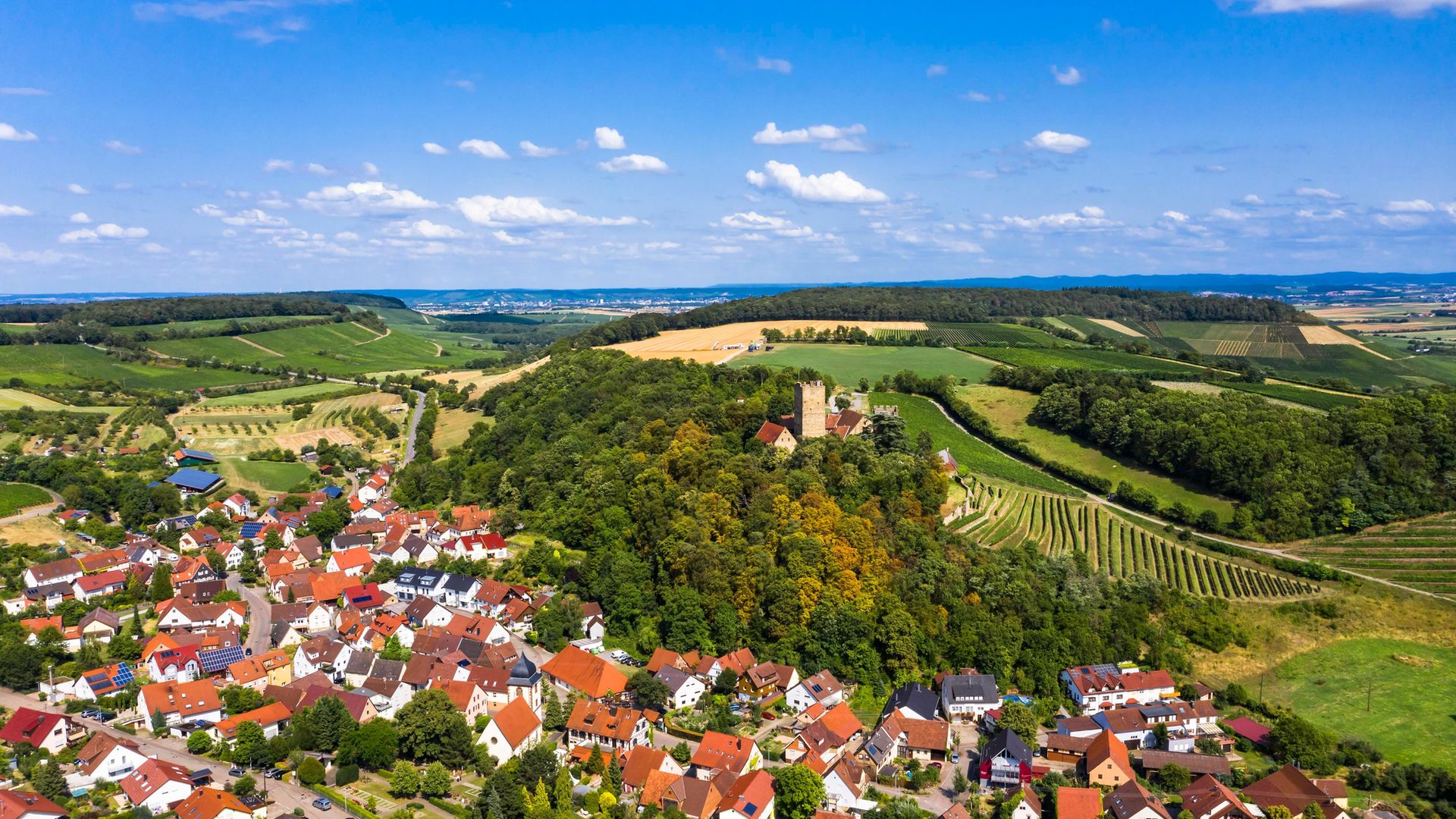With rolling hills, vineyard-striped vistas and countryside dotted with farmland, lakes and forests, Baden-Württemberg’s Heilbronn Franconia region is undoubtedly charming. On the surface, it looks like a pretty but sedate backwater, good for tourism and chocolate box photographs.
But in reality, this apparently sleepy territory of 900,000 inhabitants is an economic powerhouse attracting attention for the way its growth defies modern orthodoxy. As the UK struggles to ‘level up’ left-behind regions, could it be an inspiration? Yes, says Andrés Rodríguez-Pose, LSE professor of economic geography and adviser on combating regional inequality for institutions including the OECD, European Commission and World Bank.
The counterintuitive rise of Heilbronn Franconia offers lessons that should be applied elsewhere, he says: “Let’s not forget the south of Germany in general and Franconia in particular were once areas lagging behind.”
One of Germany’s fastest-growing regions this century, Heilbronn Franconia is home to some 65,000 registered companies, nearly all small or medium-sized, and 90 of them so-called “hidden champions” – a phrase for world leaders in niche fields. That’s nearly 26% more than in the entire UK by some estimates.
And while the rest of Baden-Württemberg has household names such as Porsche, Siemens and Hugo Boss, Heilbronn Franconia has few beyond Audi and Knorr. Rather, its family-owned businesses, older workforce and lack of a dominant big city all make it an outlier attracting the attention of curious academics.
“It’s a powerful economic story to be told. There’s an undisputed level of success over many decades, but it violates all the growth models we currently debate,” says Heidelberg University’s Johannes Glückler, co-author of a study of the region whose rise stands out even within Germany’s admired Mittelstand – its robust small- and medium-sized business sector.
“The traditional argument is that regions do better if they have a higher proportion of fast-growing industries – here, it doesn’t,” Glückler says. Its businesses aren’t disproportionally clustered in sectors and don’t conform to the usual narrative that they must be related for the best growth. “The argument is that if you do agriculture, medicine and movies, how do you expect any synergy from this? Yet in Heilbronn Franconia the hidden champions are often in unrelated industries.”
They range from ventilator manufacturers to digital technology firms and have grown slowly with a loyal, patient staff and equally patient investment. Their sturdy success contrasts strongly with the prominence and glamour of rapidly emerging million-dollar unicorns beloved of high-stakes Anglo-Saxon entrepreneurialism.
But soul searching academics have begun to highlight the latter’s correlation with inequality and strangling of competition. The argument has legs. “Is America encouraging the wrong kind of entrepreneurship?” asked the Harvard Business Review in 2017. After all, it’s small businesses rather than tech wizardry that feed most Americans.
Seeking out new growth models, Glückler and his colleagues realised that the usual monitoring statistics – eg GDP or skills qualifications – didn’t get to the soul of a place. The superficial similarities in these numbers could disguise real differences and hide deeper qualities instrumental to progress.
So they dug down to identify local peculiarities: In other words, how the game is actually played, rather than its rules or formal structures. What they found while studying a range of businesses seemed strikingly old-fashioned.
The firms, 80% of which had fewer than 50 employees, were characterised by paternalistic employer-employee relations and bonds of loyalty so strong that union membership was low. Workers had flexibility – popping in and out but toiling after hours when needed.
The companies were compact, so secretive as to often negate the need for patents, and rarely sought outside help. Progress and innovation rarely involved formal R&D processes – without needing to bid for funding or permission, workers had space to tinker until they gave up or made an improvement. Theorising and outsourcing were considered timewasting.
“I am absolutely convinced that you will always find the actual knowledge and solution in house. The problem is not to become ruled by organisational blindness, but rather to scrutinise over and over again,” explained one manager.
On a civic level, workers and their bosses networked on a personal and community level – not for professional collaboration as in, say, Silicon Valley. Sport, cultural activities and local events were engaged in and promoted, local private equity funds were created to help new start-ups.
Hans Jörg Vollert – whose firm was founded as a locksmiths in 1925 by his grandfather and is now a leading manufacturer of plant equipment for the concrete industry – says the region’s success is underpinned by a historical work ethic, good transport links, low unemployment and a variety of businesses that offer choices to jobseekers.
He also credits the local chamber of commerce – and that’s one lesson for the UK: Germany’s powerful chambers of commerce, with compulsory business membership, are key drivers in shaping regional prosperity. They commission academic research, lobby at the highest levels and knowledgeably speak for the whole of industry.
Glückler compares this with the fragmentation of business bodies he found in Britain during an OECD mission to Coventry and Warwickshire. “Many of the really engaged people I spoke to realised that the organisations they built or worked for didn’t really have the coverage necessary to really change something.”
Then there are the local ‘house banks’, whose managers’ strong relationships with businesses mean more help to stay afloat and retain staff during downturns. It’s a world away from the British trend for disappearing local branches and interchangeable bank staff.
Heilbronn Franconia also benefits from Germany’s devolved state system, which ensures the country is one of Europe’s more equitable economies. Powerful regional leaders who take a share of taxes coexist with the federal government, making it easier for each region to identify and nurture its strengths. Centralised countries such as the UK struggle with regional growth.
“If you look at the Länder in Germany, where much more power is vested in the regions, with power over industrial development, public health, housing, all kinds of things – that’s levelling up!” Manchester mayor Andy Burnham said when I spoke to him recently.
Fascination with Germany spans the political divide. “In the Noughties we used to think it was sclerotic, yet it looks so different today,” a Conservative MP remarked to me. Policymakers should shun insularity and seek lessons from abroad, he said. “The East German story is fascinating.”
Levelling up East Germany after 1991 was a national project led by then-chancellor Helmut Kohl. He splashed vast amounts of money at the problem – from the economic hit taken by equalising the West German Mark with the weaker eastern currency to a yet to be abolished national ‘solidarity tax’ for investing in projects and infrastructure. He even controversially paid entrenched Turkish ‘Guestworker’ families to go ‘home’ so East Germans could take their jobs.
Elsewhere, Germans have been tackling regional inequality that followed the demise of heavy industry – the particularly fast decline of which was a big factor in Britain’s augmented regional inequalities. The once-mighty coalmining region of the Ruhr has been opening universities and investing in knowledge-based businesses and green technologies in efforts to recover. But the strength currently still lies in small business regions such as Heilbronn Franconia.
Some nevertheless argue against trying to emulate a model based on conservative, geographically immobile lifestyles that doesn’t foster radical innovation. Despite local opportunities, many young people still yearn for glamorous cities and jobs in big-name companies. The future of some family firms hangs in the balance.
Interviewees in Heilbronn Franconia said the region largely missed out on the “technology thing”. But the chamber of commerce’s next big focus is addressing that, with concerted improvements to education and apprenticeships. Economic models do evolve – why not also tech start-ups with unicorn ambitions?
Tom Villinger, chief executive of a small family-run venture capital fund with clients across the world, says a new cluster of life science companies, high-tech and cleantech start-ups mean these efforts are bearing fruit. When I ask his advice for British regions, he points to the three universities now based in Heilbronn. “New knowledge, new technologies and new companies are emerging in the university environment.”
Finding ways of recreating something that evolved organically is tough. But there are always lessons: One that jumps out is a disdain for off-the-peg models and formal ways of getting help and driving innovation – that is, with bidding processes that favour the already skilled and savvy and pit the equally needy against each other. “Processes are wasteful because of time spent bidding, coordinating multiple agencies and duplication,” was the judgement on past levelling-up strategies by the think tank Demos in a recent report. Funds secured this way are not spent on what places need because bodies that submit the bids “do not bid for what they think is needed but for what they think central government will approve”.
Heilbronn Franconia’s growth model isn’t unique to Germany, which shows it can be replicated. Similarities exist with Spain’s Basque region and Austria’s Vorarlberg state, all with strong employer-employee relationships, regional rootedness, elaborate vocational skills and tendency for technical improvements over explorative research. Other regions share its characteristics, if not – yet – its success. Such districts were the norm in places such as the north of England and parts of northern France.
What really comes out, though, is the growing case for place-specific strategies. That is, developing an intense knowledge of a region’s skill set and sectors most likely to grow, as well as social attitudes and preferences. ‘Patient capital’ – which doesn’t sacrifice long term, sustainable business-building for short-term success – is vital.
Growth doesn’t need to be driven just from cities. Many important companies hail from small towns or the countryside, from Ikea and Zara to Germany’s vaccine hero BioNtech.
“There’s nothing predetermined in a location,” said Rodríguez-Pose. “But achieving better skills and having more access to innovation does not happen by chance, it is the result of sustained policies that respond to the specific characteristics of the territory. It all depends, really,” he added. “On the kind of country you want to be.”




